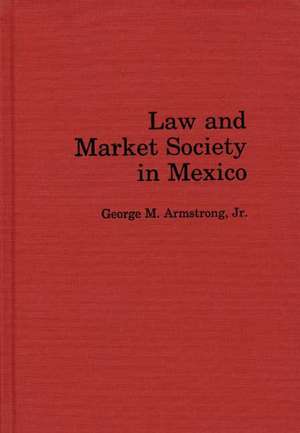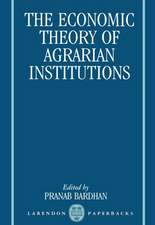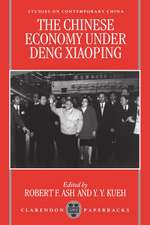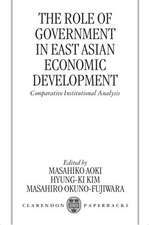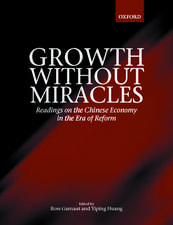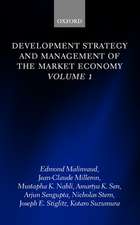Law and Market Society in Mexico
Autor George M. Armstrong, Lsien Limba Engleză Hardback – 31 dec 1988
A new theory to explain the problems Mexico has had in developing a viable market economy is presented in this innovative book. The theory bases the difficulties not on the current popular view of dependency, domestic response to foreign influence, but on Mexican culture and traditions. Armstrong traces patterns of Mexican history and lawmaking from the time of the Spanish conquistadores through the present. He demonstrates that the country has never developed a materialistic culture of egoism and autonomy, necessary in a market economy, but instead reinforces communitarian paternalism. The ideologies imported by the intellegensia (such as nineteenth century liberalism and twentieth century socialism) are shown to have had little impact on Mexico because the implicit premises of these philosophies have been incompatible with social conditions and aspirations in that nation. Armstrong argues that the blend of Spanish and traditional Indian cultures which focus on communitarian and paternalistic attitudes have constricted entrepreneurship, innovation, and commerce.
"Law and Market Society in Mexico" begins in New Spain. The author explores the patterns of land tenure by the conquistadores and collective ownership among the Indians. Both the land and labor in Mexico were generally not articles of commerce, with systems such as mortmain, entail, and debt peonage in place. Current government stewardship is seen as far more intense than the level of regulation the United States has been accustomed to. This perceptive work is ideal for courses on Latin American studies, politics, and history.
Preț: 345.30 lei
Preț vechi: 556.06 lei
-38% Nou
66.09€ • 68.74$ • 55.38£
Carte tipărită la comandă
Livrare economică 13-27 martie
Specificații
ISBN-10: 027593117X
Pagini: 173
Dimensiuni: 156 x 234 x 11 mm
Greutate: 0.43 kg
Editura: Praeger Publishers
Descriere
Law and Market Society in Mexico begins in New Spain. The author explores the patterns of land tenure by the conquistadores and collective ownership among the Indians. Both the land and labor in Mexico were generally not articles of commerce, with systems such as mortmain, entail, and debt peonage in place. Current government stewardship is seen as far more intense than the level of regulation the United States has been accustomed to. This perceptive work is ideal for courses on Latin American studies, politics, and history.
